Leon Briggs: Police and ambulance 'failures' in restraint death
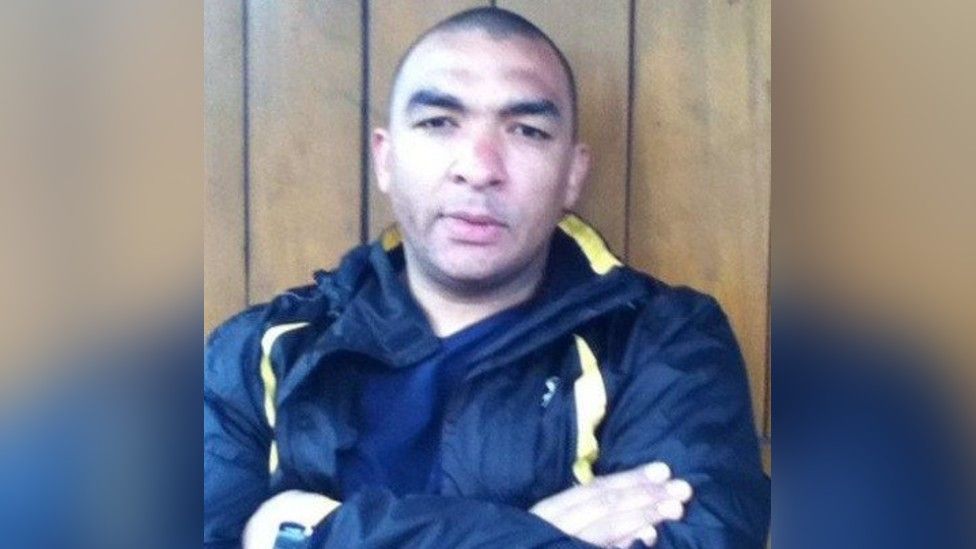 image copyrightFamily Handout
image copyrightFamily HandoutThe way in which police officers restrained a father-of-two contributed "more than minimally" to his death, an inquest jury found.
Leon Briggs died in November 2013 after being detained at Luton police station under the Mental Health Act, having been held face-down in the street.
His primary cause of death was "amphetamine intoxication with prone restraint and prolonged struggling".
A jury found a number of serious police and ambulance failures.
It recorded a conclusion that his death was "contributed to by neglect".
Mr Briggs's mother, Margaret Briggs, said the conclusion of neglect did not "reflect the evidence".
"I am disappointed that the jury did not return a verdict of unlawful killing," she said.
Bedfordshire Police said the jury had "identified a number of significant failings by the police" for which it was "truly sorry", adding the force had made "extensive changes" since.
Officers were called to Marsh Road in Luton on 4 November due to concerns about the 39-year-old's erratic behaviour.
After being restrained face-down, handcuffed and placed in leg restraints, he was lifted into a police van "like he was a bag of potatoes", witness Wendy Hamilton said.
As Mr Briggs was carried into the police station, the lorry driver of mixed ethnicity was shouting and screaming in distress.
He was detained in a cell at about 14:25 GMT. Mr Briggs became unconscious and was pronounced dead in hospital at about 16:15.
The inquest, held in Milton Keynes, was told Acting Sgt Loren Short and PC Geoff Bennett restrained Mr Briggs.
The officers said they "wanted to do the best (they) could" while he was "shouting, struggling, and kicking out", but the lawyer for Mr Briggs's family accused them of "telling a pack of lies".
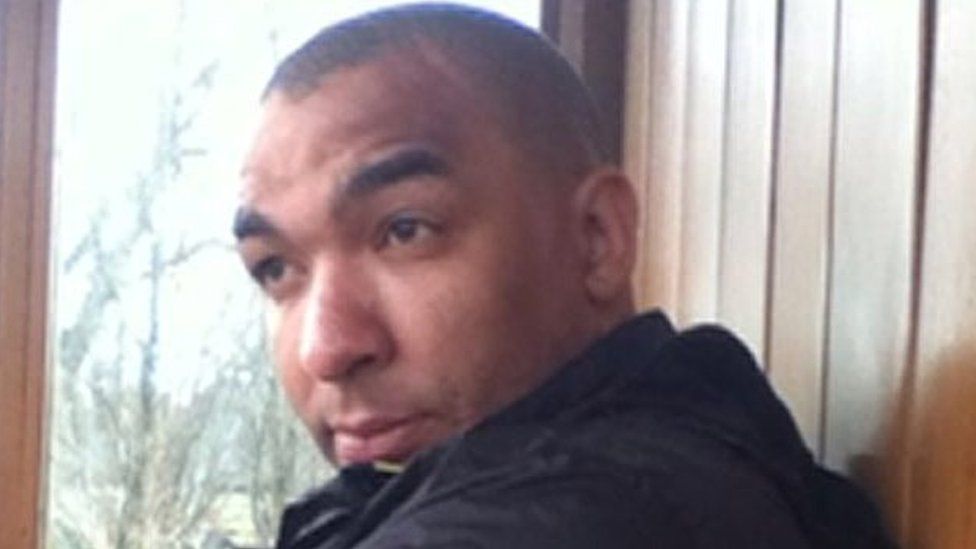
Witnesses said they heard Mr Briggs call out "please help me" while he was restrained face-down in a "dangerous position" on the concrete for more than 13 minutes.
The jury found that "inappropriate weight" was used against him, though police officers did "reasonably believe" it was appropriate.
A secondary cause of death was given as coronary heart disease.
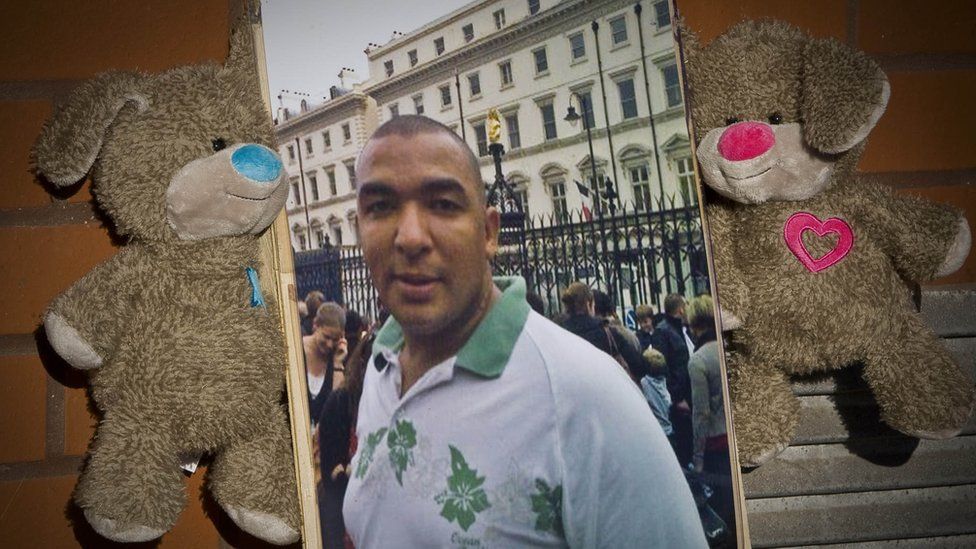 image copyrightSouth Beds News Agency
image copyrightSouth Beds News AgencyBefore the inquest, East of England Ambulance Service NHS Trust (EEAST) paramedics who attended the call had admitted a failure to check Mr Briggs's vital signs or take him to hospital in an ambulance for medical treatment.
Two paramedics who watched him being restrained "did not even speak to Leon" or "offer medical advice to police", Lewis Andrews, EEAST clinical general manager, told the inquest.
Jurors said Mr Briggs had been experiencing psychotic disorder, caused by high usage of amphetamines, resulting in erratic and irrational behaviour and his subsequent detention.
Officers failed to recognise he was in a state of medical emergency and did not monitor him in the police van and cell, which also contributed to his death, the jury said.
The jury heard officers were "laughing" as Mr Briggs was motionless and lying face down in the cell. Officers later called out his name and asked "are you all right?".
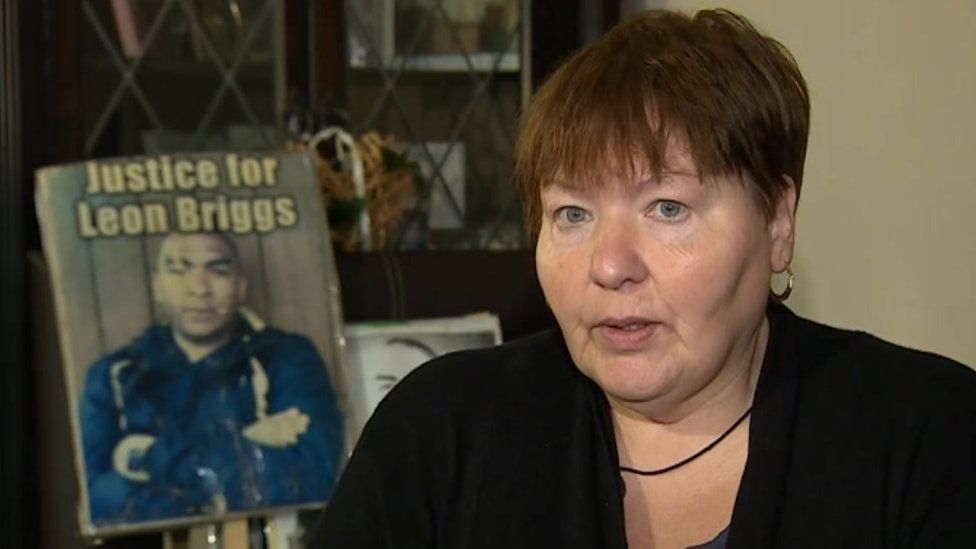
In a statement after the inquest, Mrs Briggs said: "Why did the police choose to treat my son, who was mixed race, as if his life had no value? They took away his human rights.
"To this day, those police officers still have their jobs and livelihoods and no one has been punished for Leon's death.
"There has been no accountability or justice."
Mrs Briggs urged the Crown Prosecution Service (CPS) to "reconsider bringing prosecutions".
In 2018 the CPS said no officers would be charged over Mr Briggs's death.
Mrs Briggs said she had "been truly shocked by the brutality of the treatment" of her son and "by how he suffered in his last hour of life".
"He committed no crime and yet he was restrained face down on the floor - with force used against him - and he was shackled," she said.
Bedfordshire Police Deputy Chief Constable Trevor Rodenhurst said Mr Briggs's loved ones had "to wait far too long to hear all the facts surrounding his death".
He said Mr Briggs "was suffering a drug-induced psychosis triggered by amphetamine levels described by one expert as being 'off the scale'".
"Unbeknown to officers he also had a serious underlying heart condition," he said. "There is no easy way of managing such a situation."
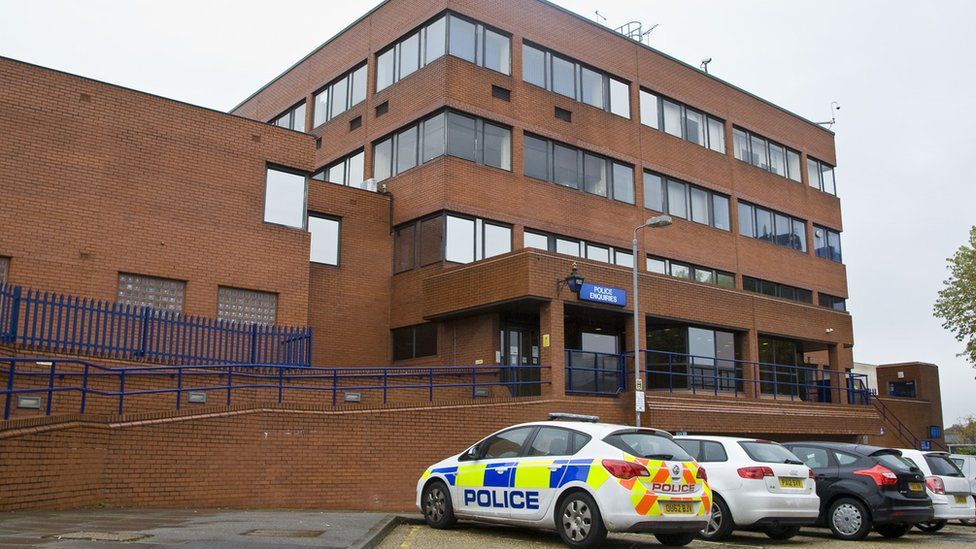 image copyrightSouth Beds News Agency
image copyrightSouth Beds News AgencyGiving evidence to the jury, PC Peter Baron, who assisted officers during the restraint of Mr Briggs, told the inquest the way he was moved from the ground to the police van went against the "approved technique".
Emma Carter, secretary of Bedfordshire Police Federation, said she disagreed with the jury's conclusion that Mr Briggs was restrained in a dangerous way, and said officers "did their very best" to deal with "a very tragic incident".
Ms Carter added that "six colleagues were suspended from duty for more than five years as part of this process".
At the time misconduct proceedings were dropped against five officers in February 2020, more than £1m of public money had been spent on their pay while they had been suspended.




No comments